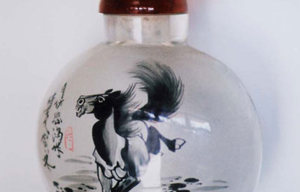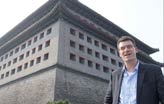Society
26 protesters killed in Yemen
Updated: 2011-09-19 09:49
(Xinhua)
SANAA - The Yemeni government forces clashed Sunday with the defected army, which claimed to have been protecting anti-government protests after opening fire on a march of tens of thousands of protesters in Sanaa, killing at least 26 demonstrators and injuring 700 others, medics and witnesses said.
A ruling party official, who asked not to be named told Xinhua that "when the protesters arrived at the end of Al-Zira'aa Street, many of them stormed the government building of the General Authority of Electricity and set it on fire while the security forces interfered to protect the government facility."
However, witnesses told Xinhua that the attack on the protesters began immediately after the government forces backed by "thugs wielding heavy machine guns and tear gas intercepted the peaceful march in a street near the building of the General Authority of Electricity in Al-Zira'aa neighborhood on Sunday afternoon."
Some of them said that "the ruling party's hired thugs were behind the attack against the electricity building, as well as another group of the thugs climbed to the rooftop of the electricity building and opened heavy fire on the protesters, killing at least 26 protesters and injuring more than 700 others."
"The 26 dead protesters received bullets in head, neck and chest, as one's head was blown up from his body due to a big shell, " one of the doctors working at the field hospital of the Changing Square told Xinhua, adding that more than 100 protesters were injured by bullets or shrapnel while hundreds of protesters suffered suffocation due to tear gas, and further more injured were on their way to the hospital.
The Yemeni defected army then deployed forces in the streets of Sanaa to defend the protesters against continuing attacks by forces loyal to President Ali Abdullah Saleh, eyewitnesses said.
"More dissident forces commanded by General Major Ali Mohsen al- Ahmar, arrived at the scene in Kintaki area and began to fire back against Saleh's forces," an eyewitness named Adel al-Yazidy told Xinhua.
More defected troops were on their way to that area, Colonel Khaled Dhaib of the defected army said.
He added that "the headquarters of the dissident First Armored Division also sent more back-up forces to the Kintaki area against Saleh's troops."
Heavy smoke was seen above a government office of the Public Works and Roads Ministry in Kintaki area, minutes after the defected forces arrived at the scene and fired back at the government forces.
"The defected armed forces managed to repel attack on the protesters marching to repeat demand of ousting President Saleh," several eyewitnesses told Xinhua. They said the defected army also "captured Kintaki area and forced Saleh's troops to withdraw to the southern parts of Sanaa."
Both sides used heavy machine guns, mortar shells and rocket- propelled grenades (RPG) in the clashes before the defected army seized Kintaki area, according to the witnesses.
The Yemeni state television said the clashes left four of the government security soldiers injured, accusing the opposition of " hiring armed tribesmen to attack the government facilities and forces."
Yemen has been gripped by eight-month political crisis since the eruption of the protest movement in late January to demand an immediate end to the 33-year rule of Saleh.
Tensions have soared recently with the rival army troops deployed heavy forces in the streets of Sanaa and other major provinces. Anti-government rallies were simultaneously held in provinces of Taiz, Aden, Ibb, Al-Hodayda and Dhamar to protests against what they reportedly said "the government massacre on their colleagues in Sanaa."
Saleh, who is still in Saudi Arabia for rehabilitation for injuries he sustained in an attack on his palace in early June, issued a decree last week to authorize his deputy Abd-Rabbu Mansour Hadi to sign the power-transition deal brokered by the Gulf Cooperation Council (GCC) after launching a dialogue with the opposition to set a timetable and a mechanism to transfer power.
Saleh's move is welcome by the United States, which said Thursday that "there were encouraging signs for the GCC deal to be accomplished within one week." However, the opposition insisted that Saleh should sign the deal first before any dialogue is launched.
E-paper

The snuff of dreams
Chinese collectors have discovered the value of beautiful bottles
Perils in relying on building boom
Fast forward to digital age
Bonds that tie China. UK
Specials

Let them eat cake
Cambridge University graduate develops thriving business selling cupcakes

A case is laid to rest
In 1937, a young woman'S body was found in beijing. paul french went searching for her killer

Banking on change
Leading economist says china must transform its growth model soon
